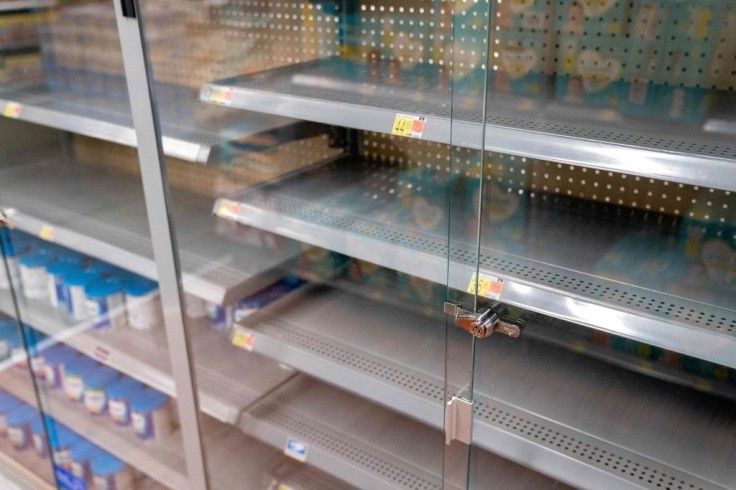
The White House announced on Wednesday, May 18, that the U.S. government would fly in baby formula on commercial planes contracted by the military to ease the baby formula shortage in the country.
The nationwide shortage of milk formula, a result of pandemic-related supply chain issues and a massive formula recall, had parents all over the country scrambling for formula milk and calling for President Joe Biden to act on the matter the soonest.
Operation Fly Formula
As per Channel News Asia, the Department of Defense will use its contract with commercial air cargo lines to transport products from manufacturing facilities abroad that have met Food and Drug Administration (FDA) safety standards. The White House had made a similar move during the early months of the COVID pandemic.
The effort, which the White House dubs "Operation Fly Formula," aims to bypass regular air freighting routes to speed up the importation and distribution of milk formula. The supply will immediately support formula milk manufacturers in increasing their production.
Biden had also invoked the Defense Production Act to give baby formula manufacturers a priority in supplies.
The White House said that they are directing firms to prioritize and allocate the production of crucial infant formula inputs to help increase production and speed up supply chains.
The baby milk formula crisis
As of the first week of May, 43 percent of baby formula was out of stock at retailers, a product firm called Datasembly reported.
The Guardian reported that baby formula was already plagued with pandemic-related supply chain problems. However, in February, Abbott Laboratories, the maker of baby formulas, closed a manufacturing facility in Sturgis, Michigan, after voluntarily recalling its infant formula products.
The recall came after a federal investigation of the facility following four babies who took their formula milk developing bacterial infections. Two of these babies died. Abbott denied the link between the formula and the illnesses. The closure of the Michigan plant "really exacerbated things," Dr. Christopher Duggan, director of the Center for Nutrition at Boston children's hospital, said.
States most affected by shortages
States affected by the severe shortages include Tennessee, Texas, and Iowa, where more than 50 percent of the popular products are out of stock.
The crisis also hit the poorest families the most. Nearly half of baby formula in the U.S. is bought under the WIC program, which aims to help low-income women, infants, and children. Abbott provides formula milk to about half of the babies receiving benefits. When the product supply dwindled, the families were left scrambling to find alternatives.
The shortage of milk formula also caused panic buying among consumers, causing significant market chains to limit the number of formula containers that a person can buy. The Vox reported that local officials and parents are also worried about price gouging.
Meanwhile, frantic parents spend much of their time looking for formula milk in stores nationwide. Some parents make "homemade milk" to ensure that their babies have enough milk to get by, which health experts warn against.